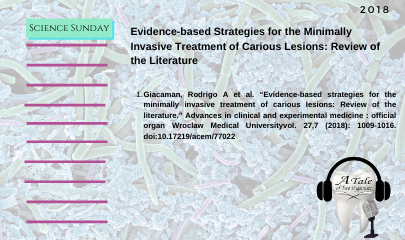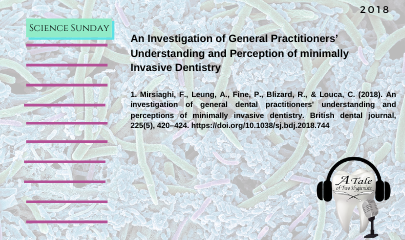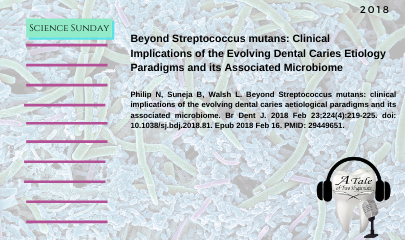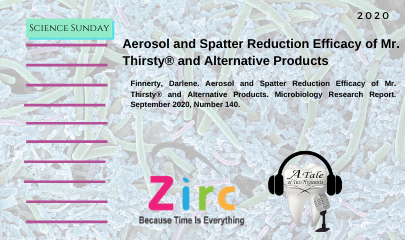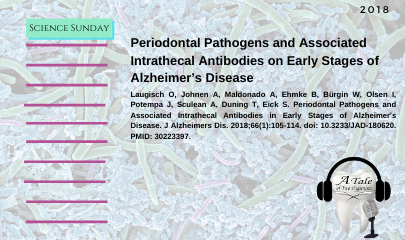Evidence-based Strategies for the Minimally Invasive Treatment of Carious Lesions: Review of the Literature Treatment of carious lesions is currently solely restorative. Other minimally invasive treatments are great alternatives for managing carious lesions. A recent review published in 2018 … [Read more...] about Evidence-based Strategies for the Minimally Invasive Treatment of Carious Lesions: Review of the Literature – Science Sunday
An Investigation of General Practitioners’ Understanding and Perception of minimally Invasive Dentistry – Science Sunday
Minimally invasive dentistry (MID) is a new concept that suggests changing the principles of operative dentistry, as it has been proven to be a better way to manage the dental disease with minimally invasive procedures keeping the integrity of the tooth intact. A study published in 2018 in the … [Read more...] about An Investigation of General Practitioners’ Understanding and Perception of minimally Invasive Dentistry – Science Sunday
Science Sunday: Sealing Carious Tissue Using Resin and Glass Ionomer Cements
There is an abundance of evidence that indicates sealants are effective in the prevention and progression of non-cavitated carious lesions. The authors of a study published in 2018 pondered the possibility that sealing cavitated lesions without carious tissue removal could be an option in minimizing … [Read more...] about Science Sunday: Sealing Carious Tissue Using Resin and Glass Ionomer Cements
Low Microbiome in Populations with a Low and High Prevalence of Caries
Previous studies have shown the oral microbiome stays stable unless it is disturbed by medication, disease, low pH, or significant changes in diet. Dysbiosis of the oral microbiome by colonization of aciduric and acidophilic bacteria is associated with dental caries. In a clinical study published in … [Read more...] about Low Microbiome in Populations with a Low and High Prevalence of Caries
Beyond Streptococcus mutans: Clinical Implications of the Evolving Dental Caries Etiology Paradigms and its Associated Microbiome – Science Sunday
Untreated caries in permanent teeth is the most prevalent human disease worldwide, according to the 2015 Global Burden of Disease report. Dental caries is now understood to be multifactorial, with no single causation pathway. In an article published in 2018 in the British Dental Journal Philip et al … [Read more...] about Beyond Streptococcus mutans: Clinical Implications of the Evolving Dental Caries Etiology Paradigms and its Associated Microbiome – Science Sunday
Targeting of Streptococcus mutans Biofilms by a Novel Small Molecule Prevents Dental Caries and Preserves the Oral Microbiome – Science Sunday
Previous studies have demonstrated the introduction of processed sugars coincides with the prevalence of S. mutans in dental plaque and biofilm. There is also an abundance of evidence that indicates S. mutans in the decay process leading to dental caries. In a recent study published in 2017 in the … [Read more...] about Targeting of Streptococcus mutans Biofilms by a Novel Small Molecule Prevents Dental Caries and Preserves the Oral Microbiome – Science Sunday
Aerosol and Spatter Reduction Efficacy of Mr. Thirsty® and Alternative Products
The COVID-19 pandemic has highlighted the need for dental hygienists to be aware of aerosols and spatter. In the past aerosols and spatter have been a concern, but never to the degree it is today. The COVID-19 pandemic has been a thorn in the side of dentistry since day one, however it has … [Read more...] about Aerosol and Spatter Reduction Efficacy of Mr. Thirsty® and Alternative Products
Periodontal Pathogens and Associated Intrathecal Antibodies on Early Stages of Alzheimer’s Disease
Clinical evidence supports a potential link between inflammation and Alzheimer’s disease. Additional studies have postulated a possible link between periodontal pathogens and Alzheimer’s disease. Additionally, a systematic review published in 2017 found a significant association between periodontal … [Read more...] about Periodontal Pathogens and Associated Intrathecal Antibodies on Early Stages of Alzheimer’s Disease
